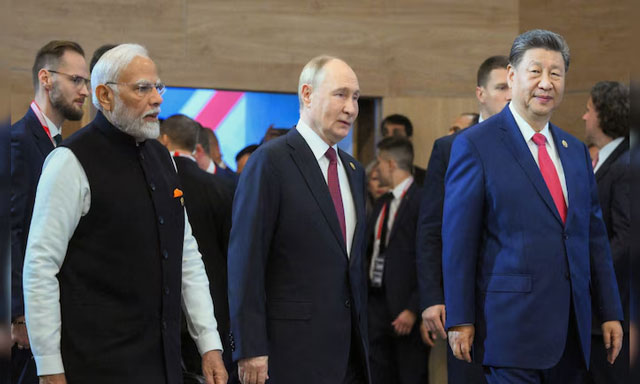Daijiworld Media Network – Washington
Washington, Sep 5: In a sharp swipe at deepening ties between New Delhi, Moscow and Beijing, US President Donald Trump on Thursday said it “looks like we’ve lost India and Russia to deepest, darkest China,” before sarcastically wishing the three nations a “long and prosperous future together.”
Trump’s remarks on his Truth Social account came days after Prime Minister Narendra Modi, Russian President Vladimir Putin, and Chinese President Xi Jinping met in Tianjin for the Shanghai Cooperation Organisation (SCO) summit, where they explored expanded cooperation on energy, security and trade.

The post marks Trump’s strongest public acknowledgment yet of India’s renewed engagement with Beijing and Moscow, even as Washington has long seen New Delhi as a counterweight to China’s influence.
During his first term, Trump courted India with high-profile gestures, including appearing with Modi at the 2019 Howdy Modi rally in Houston and reviving the Quad alliance with Japan and Australia. But ties have cooled in recent years amid tariff disputes and Washington’s criticism of India’s growing energy trade with Russia.
Since returning to office, Trump has slapped steep duties on Indian imports – a combined 50% tariff covering goods as well as oil shipments tied to Russian crude. He has accused India of “financing Moscow’s war in Ukraine” through discounted purchases.
“What few people understand is that we do very little business with India, but they do a tremendous amount with us. It has been a one-sided disaster,” Trump said recently.
India, however, has defended its energy decisions. External Affairs Minister S. Jaishankar has pointed out that Europe and China also continue to buy Russian crude in large quantities, yet face less criticism.
The Tianjin summit also marked Modi’s first visit to China in seven years, underscoring New Delhi’s emphasis on strategic autonomy despite lingering tensions with Beijing, including the deadly 2020 Galwan Valley clash.
Analysts say Trump’s latest remarks reflect Washington’s unease as India seeks to balance relations with competing global powers rather than fully aligning with the West.